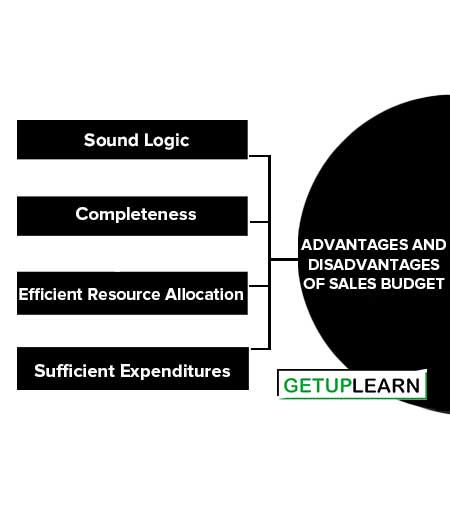Table of Contents
Advantages of Sales Budget
A sales budget is only as good as its assumptions, as it is difficult to forecast future trends and events. A sales budget takes the components of the selling process of a business to forecast sales, which ultimately determines the company’s bottom line or operating profit.
By its very nature, a sales budget requires management to make assumptions regarding various expenditures to achieve its targeted sales objectives.
Developing a realistic sales budget is critical for management to properly allocate the company’s resources, such as capital, staff, and indirect labor. Before implementing the sales budget, the strengths and weaknesses should be analyzed, and modify the budget as a result of the analysis.
Advantages and Disadvantages of Sales Budget
These are the advantages and disadvantages of sales budget:

Sound Logic
There must be sound strategic reasons for expenditures, based on a clear understanding of how to reach target customers. It’s not sufficient, for example, to say that advertising spending will be increased by five percent over last year because that’s the percentage increase always used.
The cause and effect analysis has to be done. Post analysis it should be clear which marketing methods were most effective in generating new business.
Completeness
A weakness in a company’s sales budget could be that it underestimates the actual funds required to implement the chosen strategies and action plans. Adopting an underfunded budget may result in a profit shortfall because more money than forecast will have to be spent to implement the required action plans.
The result could also be there won’t be sufficient funds to implement all the action plans, which could have a negative impact on future sales. If a new strategy is being implemented for which there is no prior cost history, extra funds may be included to meet the possibility of underestimation of the cost of implementation.
Efficient Resource Allocation
One of the most difficult parts of sales budgeting is determining which categories are the most important and should receive the most funding.
This needs to be discussed in an open forum with inputs coming from all concerned people. This discussion allows everyone to contribute views and perspectives. The result should be a better-informed allocation of human and financial resources.
Sufficient Expenditures
Another important test of the sales budget’s strength is whether it is adequate to accomplish the strategic objectives. Advertising, for example, is more effective if done on a consistent basis. The consumer needs to see the ad several times in order to remember the message.
For many firms, an increase in the sales budget can mean lower profits in the short term as marketing initiatives take time to gain a hold in the marketplace. But marketing expenditures fuel the growth of the business and help build a competitive advantage.
Data from industry trade organizations about what the competitors in the industry spend on marketing can be studied to make sure that the expenditures are comparable.
FAQs Section
What are the advantages and disadvantages of sales budget?
The following are the advantages and disadvantages of a sales budget:
1. Sound Logic
2. Completeness
3. Efficient Resource Allocation
4. Sufficient Expenditures.
